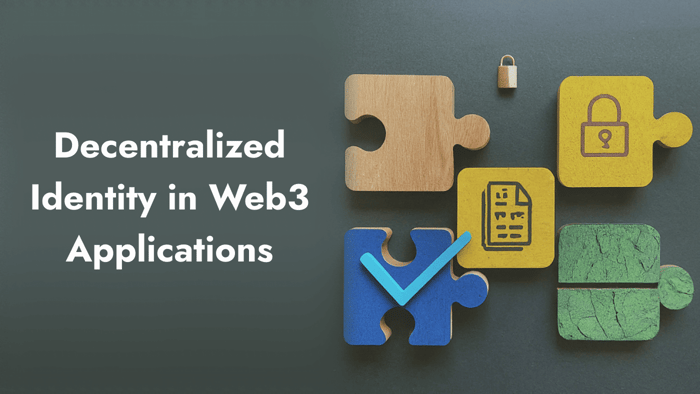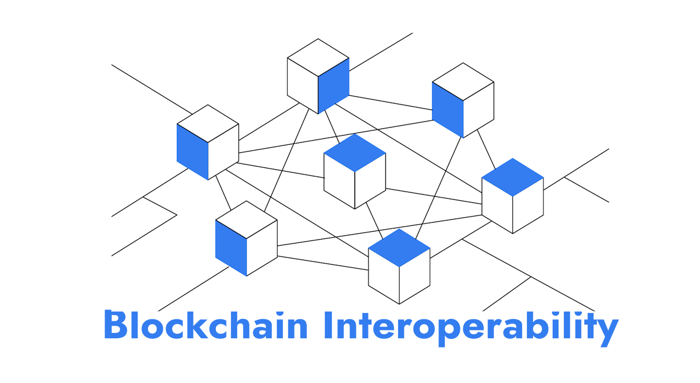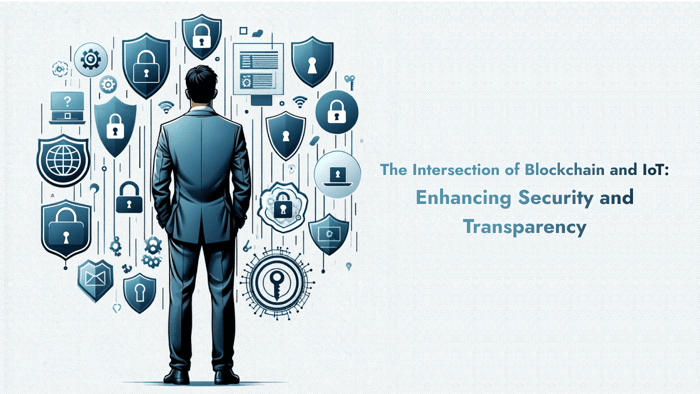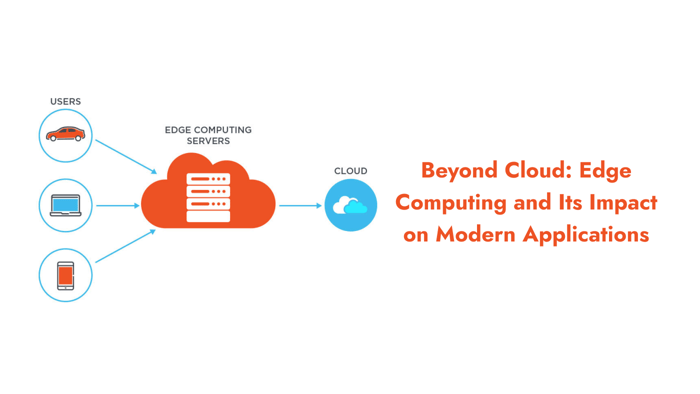Learn about decentralized identity in Web3 Application
The digital world and how we manage our identities online are constantly evolving. Decentralized Identity (DIDs) have emerged as a new advancement in the digital world, offering the potential for self-sovereign identity. This innovative concept gives individuals greater control over their personal information and represents a shift from traditional, centralized identity management systems. DIDs enable users to create and manage their digital identities without relying on any central authority, thereby enhancing privacy, security, and user autonomy. DIDs are unique identifiers that are not controlled by any single entity, such as a government or corporation, providing individuals with greater autonomy and flexibility in how they share and manage their data.
This article explores the essence and implications of decentralized identity within Web3 applications, offering readers a comprehensive understanding of its components, practical applications, and challenges. It will examine how DIDs can revolutionize the way we interact online, fostering a more secure, private, and user-centric digital experience.
As we navigate the intricacies of decentralized identity, this article aims to equip readers with a comprehensive understanding of its mechanics, its potential to empower users with greater control and privacy, and its capacity to shape the future of the internet.
Core Components of Decentralized Identity
The core components of decentralized identity, such as Verifiable Credentials (VCs), Soulbound Tokens (SBTs), Non-Fungible Tokens (NFTs), and Zero-Knowledge Proofs, are integral to the realization of a self-sovereign digital identity. They exist to address the critical need for privacy, security, and user autonomy. By enabling individuals to manage and share their identity information without compromising sensitive details, these technologies collectively pave the way for a more secure, private, and user-centric online experience. This foundational framework not only enhances trust in digital interactions but also empowers users with unprecedented control over their data.
These core components include:
- Verifiable Credentials (VCs): VCs have emerged as a crucial element in decentralized identity management, as they allow individuals to validate their claims without revealing sensitive information. VCs ensure privacy by enabling the verification of credentials without disclosing the underlying data. This technology has transformed the way personal information is shared and verified online, providing enhanced privacy and security to users. Maintaining data confidentiality while establishing the credibility of credentials is a fundamental requirement of contemporary identity management, making VCs an essential component of decentralized identity. VCs offer a safe and confidential way to share personal information.
- Soulbound Tokens (SBTs) and Non-Fungible Tokens (NFTs): SBTs are a unique type of identity solution in the decentralized web ecosystem. They provide a permanent and non-transferable record of certain attributes or affiliations of a decentralized identifier. In contrast to NFTs, which are usually linked to ownership of digital or physical assets, SBTs directly tie specific attributes to an individual's digital identity. This emphasizes the non-fungible nature of personal qualifications or experiences.
- Zero-Knowledge Proofs: Zero-knowledge proofs are considered a key technology in improving the privacy and security of decentralized identity systems. This method enables individuals to confirm the truth of a claim about themselves without disclosing any further information. This approach not only helps to maintain privacy but also provides an additional layer of security by reducing the amount of personal data exposed during digital interactions.
These components are integral to the evolution of decentralized identity, each offering unique benefits that, when combined, provide a robust framework for privacy, security, and user sovereignty in the digital realm.
The Role of W3C and Standardization
Standardization in decentralized identity is an important step towards creating a universally accessible, secure, and interoperable digital ecosystem. The World Wide Web Consortium (W3C) plays a significant role in this regard by developing and maintaining standards for Decentralized Identifiers (DIDs). These standards help to ensure that digital identities can operate across different platforms and applications while enhancing their security and privacy features. By establishing a common framework, W3C enables diverse systems to understand and trust the identities verified through this new paradigm, thereby promoting a seamless and user-centric online experience.
Standardization is crucial in decentralized identity (DID) for several reasons:
- Interoperability: The purpose of the system is to facilitate the recognition and understanding of DIDs that are issued by various systems. This aims to promote seamless interaction across multiple platforms and applications within the decentralized web.
- Security: The use of standardized protocols and specifications can greatly improve the implementation of secure DID solutions. These protocols establish best practices, which can help mitigate vulnerabilities and improve the overall security of the ecosystem.
- Privacy: The objective of standardization is to create uniform privacy-preserving mechanisms for the management and sharing of personal data within the DID framework. This approach helps to protect user privacy and allows for greater control over their information.
The W3C engages in collaborative efforts with diverse stakeholders, such as technology developers, identity providers, and user communities. These efforts aim to establish technical specifications and best practices for implementing Decentralized Identifiers (DIDs). The standards developed by W3C promote interoperability, enhance security measures, and prioritize user privacy within the decentralized identity landscape.
Practical Applications and Examples
Decentralized identity has practical applications in various digital interactions, as it alters how personal identity is managed and utilized online. Decentralized Identity Management Solutions (DIMS) play a significant role in this regard by providing infrastructure for users to create, manage, and store their DIDs, along with associated credentials and verifiable claims. These solutions prioritize user control and privacy by enabling individuals to decide what information they share, with whom and for what purpose.
On-chain decentralized identifiers (DIDs) and smart wallets, such as Ethereum Universal Profiles, are novel approaches to managing digital identities. While on-chain DIDs offer enhanced security and transparency, they may incur transaction fees and depend on the underlying blockchain's scalability. Similarly, smart wallets present a convenient solution, but they may introduce additional complexity and require users to possess a certain level of technical expertise.
Overall, decentralized identity has the potential to create a more secure, private, and user-centric digital world. However, it is important to acknowledge the trade-offs involved in these advancements, including the complexity of managing private keys and the potential for reduced user-friendliness.
Here are some examples of how DID can transform various aspects of our digital interactions:
- Empowering individuals in the gig economy: Distributed identifiers (DIDs) can be utilized by freelancers and contractors to manage their professional credentials and demonstrate their skills and experience to potential clients. This can eliminate the necessity of depending on centralized platforms and reduce the dependency on traditional verification methods.
- Simplifying access to financial services: Digital Identifiers (DIDs) can enable individuals in regions with limited access to traditional banking systems to establish secure digital identities. This can facilitate their participation in financial services and promote financial inclusion.
- Revolutionizing voting systems: Decentralized Identifiers (DIDs) have the potential to facilitate secure and transparent voting platforms, thereby mitigating the risk of fraud and manipulation while preserving voter privacy.
- Streamlining data sharing in healthcare: DIDs (Decentralized Identifiers) can allow patients to securely manage and share their medical data with authorized parties such as healthcare providers and researchers. Patients can maintain control over their sensitive information while sharing it with relevant parties.
Decentralized identity has been proposed as a technology that can transform the way we interact with the digital world. It offers greater privacy, security, and control over our personal information. As the technology continues to mature and practical applications emerge, DIDs have the potential to revolutionize various aspects of our digital lives.
Challenges and Future Directions
Decentralized identity (DID) is an emerging technology that faces challenges such as interoperability across diverse systems and privacy concerns. Interoperability remains a key hurdle as different systems and platforms may implement DIDs in unique ways, hindering seamless communication and data exchange. Additionally, privacy concerns are a major consideration, with balancing the need for convenience and security with robust privacy safeguards being essential to building trust in DID solutions.
Efforts are underway to address these challenges and leverage emerging trends for the advancement of this innovative field. Standardization efforts are continuously refining DID specifications to create a more unified ecosystem, and organizations like the W3C play a vital role in this process. Emerging technologies are also contributing to the evolution of DIDs, with solutions like the Cheqd network utilizing blockchain technology to facilitate secure and verifiable credential sharing, addressing privacy concerns and simplifying data exchange between different entities.
Zero-knowledge proofs (ZKPs) are also increasingly being adopted, which hold great potential for DID technology. ZKPs allow individuals to prove specific attributes without revealing the underlying data, enhancing privacy and security while granting access to services and resources.
Despite the challenges faced by DID, the future of this technology remains promising. With ongoing efforts to address interoperability, enhance privacy, and leverage emerging technologies, DIDs have the potential to revolutionize the way we interact with the digital world, placing users firmly in control of their identities and personal data.
Conclusion
Decentralized identity is a technological advancement that offers enhanced privacy, security, and control to users in their digital interactions. It is a transformative approach that enables individuals to manage their online presence with autonomy and confidence. Decentralized identity technologies are expected to play a significant role in the evolution of the internet by driving the Web3 vision towards a more user-centric, secure, and inclusive digital ecosystem. The potential for innovation and improvement in this domain suggests a bright future where digital interactions are more trustworthy, private, and user-driven.
By utilizing DIDs and Verifiable Credentials, users can engage in online interactions with greater privacy, security, and control. It empowers individuals to decide what information they share, with whom, and for what purpose, fostering a more user-centric and transparent digital environment.
The future of decentralized identity holds immense potential as the technology matures and integrates with emerging trends like blockchain and zero-knowledge proofs. DIDs promise to revolutionize various aspects of our lives, from streamlining data sharing in healthcare to unlocking new possibilities in the gig economy.
Ultimately, decentralized identity has the potential to shape a future where individuals can navigate the digital world with greater autonomy, fostering a more secure, trustworthy, and user-centric internet for all.
Akava would love to help your organization adapt, evolve and innovate your modernization initiatives. If you’re looking to discuss, strategize or implement any of these processes, reach out to [email protected] and reference this post.





